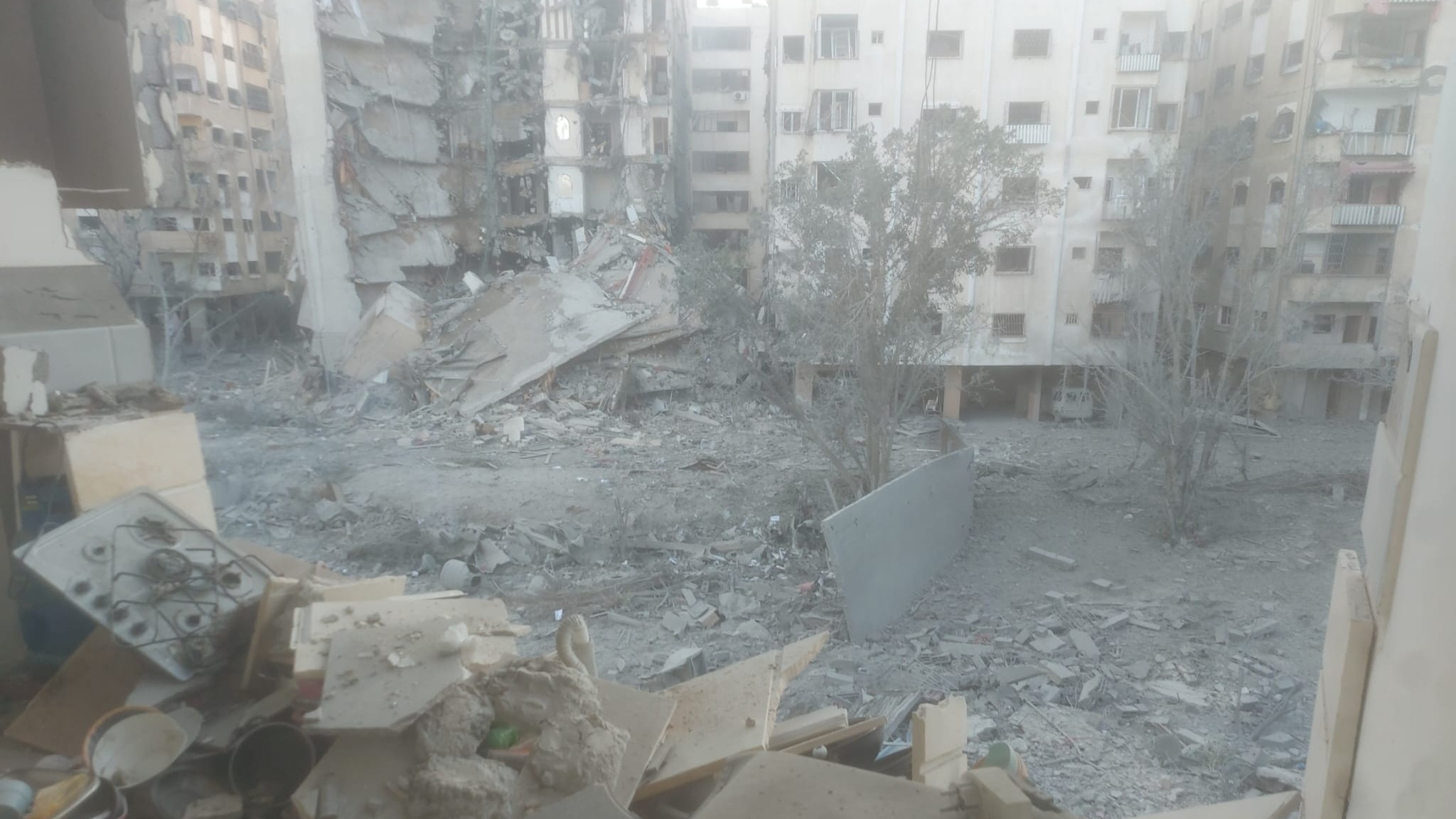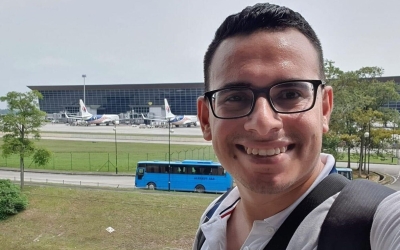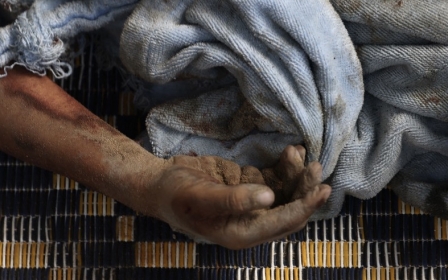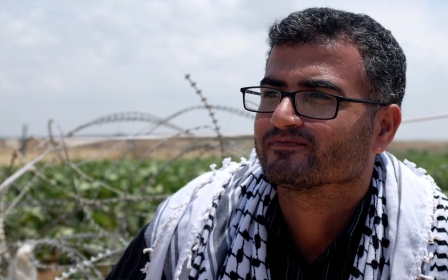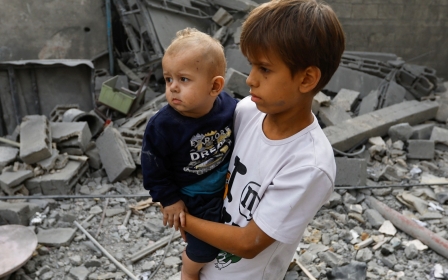Israel-Palestine war: My family in Gaza is searching for a safe place. It might not exist
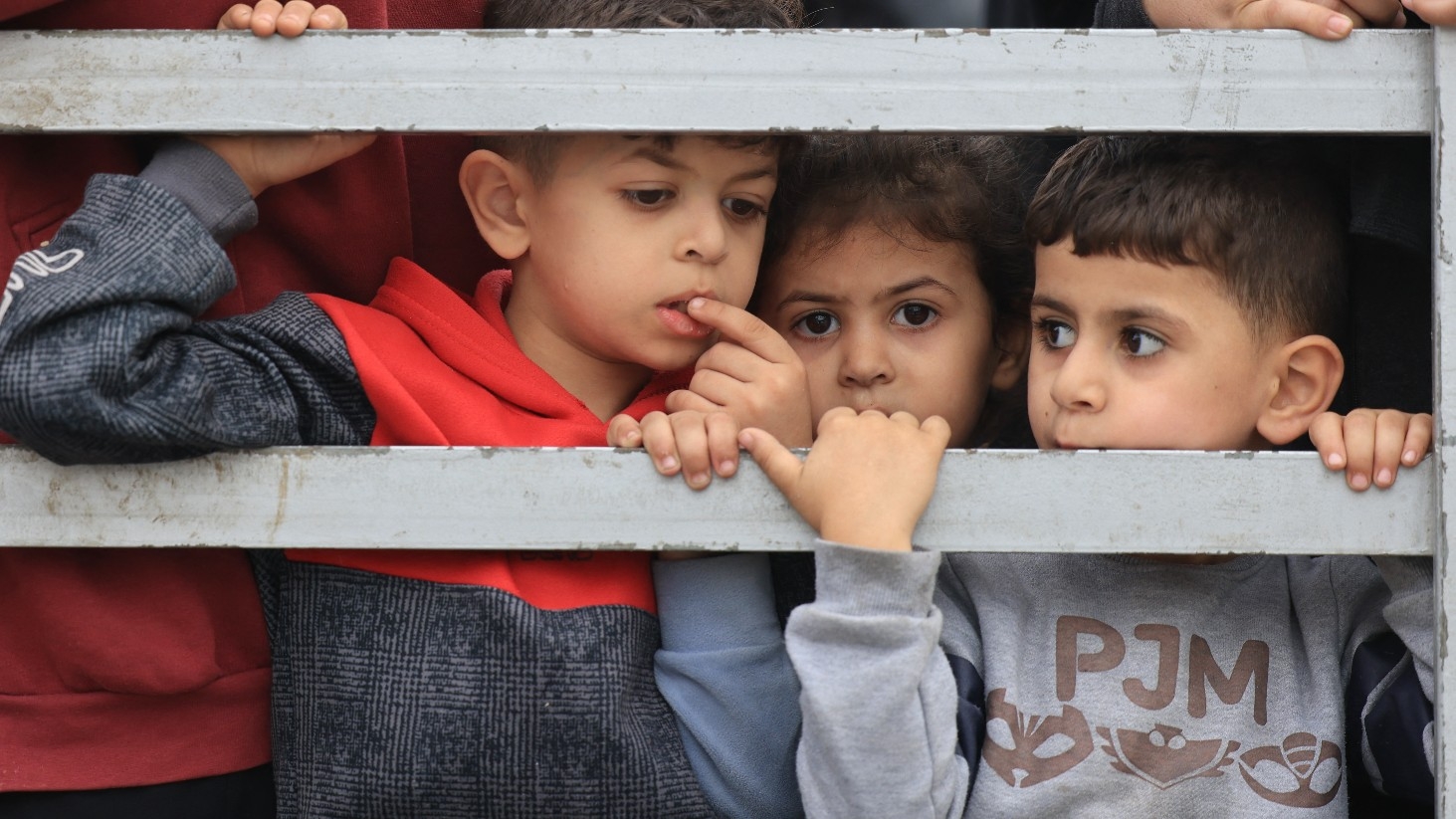
I am nearly 4,000 kilometres away from fear, hunger, thirst, bombardment, destruction, rubble, tanks, warplanes, the noise of drones flying at low altitude, ambulance sirens, cries of babies, and the faces of my loved ones.
I am in a peaceful village on the River Tyne in Britain, where the biggest worries are rail strikes and the rising cost of living. Meanwhile, my loved ones are in Gaza, where the biggest worries are finding the next glass of drinking water and avoiding being killed in an Israeli air strike.
On 29 October, after communications were restored following a massive blackout, my brother Mohammed sent me a selfie on WhatsApp showing him with a dozen water bottles. He felt like a hero for being able to secure these for the family.
He sent another selfie with his son after he shaved both their heads, thinking that by the time they would need their next haircuts, the war might be over.
We laughed at how wars make you appreciate what you used to take for granted. Everything turns into a luxury: a hot meal, a nice night of sleep in your bed, clean drinking water, and using your favourite shampoo while taking a warm shower.
New MEE newsletter: Jerusalem Dispatch
Sign up to get the latest insights and analysis on Israel-Palestine, alongside Turkey Unpacked and other MEE newsletters
But then Mohammed stopped replying. Half an hour later, he sent photos of our living room, all grey and partially damaged. I panicked and asked him to leave the house if it had been hit. It felt like something worse was about to happen.
My family ran out of the house. They grabbed their pre-packed bags, which had been next to the door since the war broke out, picked up the children, and ran out. A few minutes later, another air strike hit, destroying our home. Thankfully, my family made it out alive.
Longest night
They stayed overnight at a neighbour’s house. That night was very long. Watching the news, I saw that the area where our family lived, Tel al-Hawa, was being heavily bombarded.
I feared they would not make it to the next morning. I begged them to go south. But leaving was no longer an option; they could not find a car, and it was not safe to go anywhere.
Follow Middle East Eye's live coverage for the latest on the Israel-Palestine war
Al-Quds Hospital is near our home. It has been a refuge for thousands of Palestinians in Gaza since the war erupted. My family wanted to go there, thinking no place would be safer. Again, I begged them not to go, because I was watching videos on social media that showed air strikes around the hospital.
My brother said a friend had promised to pick him up in the morning and head south if the air strikes stopped. We all had to just wait until the morning. There was nothing else that could be done.
Never could I have known that it would be the last time I ever stayed in the home where I grew up
That night was the longest of my life. I kept thinking of the worst scenarios. I quietly said my goodbyes to my family.
And I kept remembering our three-storey home, where my parents, sister and brother all lived with their families. In less than an hour, their lives had been turned upside down; they were now homeless.
“It is okay,” I reminded myself. “They are alive, at least. Who cares about some stones anyway? Houses are made to protect us, and as soon as they fail to do so, they are no longer important.”
We tell ourselves these things because we feel powerless. In truth, this house was more than just some stones put together. It was our home, and I needed to grieve that loss.
Memories of home
My parents built that house. I was 13 at the time; I recall them looking at designs and asking us where we wanted our bedrooms. I remember parties, sleepovers and laughter at that house. I remember my graduation celebration. After I gave birth to my son, he spent the first two months of his life in that house as my parents looked after us.
Our house was beautiful, full of pictures of the children, grandchildren and my mother’s handmade Palestinian embroideries. She cooked and hosted people all the time; you could smell her cooking as soon as you opened the door.
But they were not all happy memories. I also remembered the fear I felt at that house. I remembered the 2008-2009 war on Gaza, the first one I ever experienced. I walked into my room to straighten my hair, and suddenly saw a building falling apart outside my window.
We all spent that war sitting under the staircase, while Israeli tanks invaded Tel al-Hawa. I can still hear the sounds of the tanks, and the cries of a man who was shot by an Israeli soldier and bled to death. Suddenly, his cries stopped.
I did not want to remember another war as we were living through this one.
My memories took me back to 2020, the last time I saw my family in Gaza. My mum cooked all the food I liked as soon as I came to visit from the UK. I stayed in my old bedroom, but this time with my little son. Never could I have known that it would be the last time I ever stayed in the home where I grew up.
As I remembered all of this, I reminded myself that my only worry now should be my family’s safety. Israel killed my memories, but when it came to my family, I just hoped they would not run out of luck.
'It is all destroyed'
On 30 October, my brother called to tell me that my family had managed to flee. The “safe route” Israel had pointed to was destroyed, so they took another road. What should have been a 15-minute trip ended up taking two hours.
My brother described the destruction of Gaza as they drove: “I could not recognise where I was. Everything looks the same; it is all destroyed.”
They went to a friend’s house south of Wadi Gaza for the second time; they had gone there for a period earlier in the war after Israel initially ordered everyone in the north to leave, but they soon returned home, citing dire humanitarian conditions in the south. My brother said he once had to go from shop to shop for two hours, searching for drinking water amid ongoing air strikes. He came back with six water bottles.
Because hundreds of thousands of people had fled to the south at the same time, demand far outstripped supply.
She rushed in and grabbed him. He told her: 'Mama, I saw fire in the mirror. I saw so much fire.' And the little boy froze
My family lasted just a few days there this time too, after the neighbourhood where they had been staying was hit by air strikes on 5 November, killing dozens of people. My sister remembers strangers knocking on the door of the house where they were staying, asking if they could go up to the rooftop to look for lost children or dead bodies.
Ahmad, my four-year-old nephew, did not shout or cry when the air strikes hit. My sister initially thought he was dead, as all the windows had shattered in the bedroom where he was sitting. She rushed in and grabbed him. He told her: “Mama, I saw fire in the mirror. I saw so much fire.” And the little boy froze.
They fled again that day to a centre in Rafah, which has been hosting people from the north with no place or family to go to. My family members are all alive today, sleeping on mattresses and blankets in a classroom. They have no kitchen or fridge, and they share toilets with everyone staying there. My brother must still go out every day to find food, water and diapers.
On 8 November, my sister sent a message saying: “Hala, I finally showered.” I could not believe the happiness that message gave me.
As I reflect on all of this, I feel both lucky and unlucky. Lucky that my family members are still alive, but unlucky for so many other reasons. I still have never met my five-month-old nephew, Salam, which ironically means “peace” in Arabic. I just wonder if he will live long enough for me to see him, or to have a life in peace.
The views expressed in this article belong to the author and do not necessarily reflect the editorial policy of Middle East Eye.
Middle East Eye delivers independent and unrivalled coverage and analysis of the Middle East, North Africa and beyond. To learn more about republishing this content and the associated fees, please fill out this form. More about MEE can be found here.



